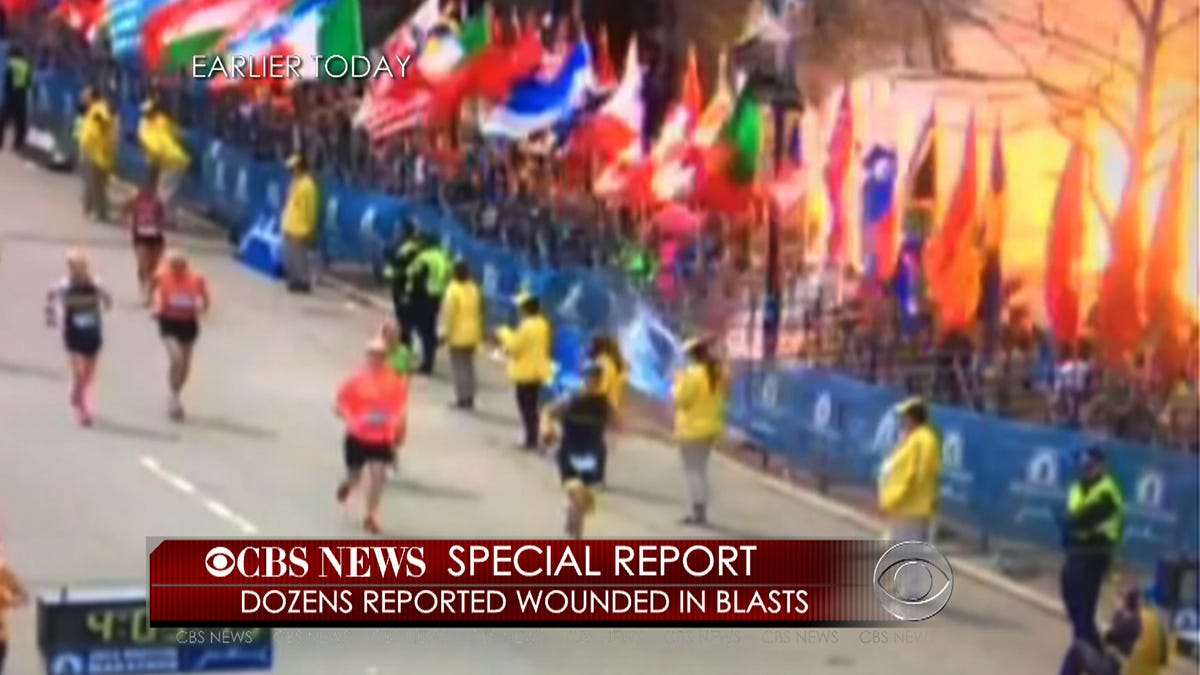Crowdsourced videos, photos could aid Boston blast investigations
Those who recorded what happened before two fatal blasts at the Boston Marathon could have been gathering evidence, not just capturing memories.

Law enforcement officials could have something very different on their hands as they investigate the dual bomb blasts that struck the Boston Marathon finish line today: a potential abundance of photo and video evidence from the public.
Government surveillance, while growing, still misses more than it catches. But events with thousands of spectators offer the potential for a detailed crowdsourced record of what happened.
This public panopticon is changing how we see the world. February's Russian meteor was captured by many dash-cams mounted in Russian cars, but in this case the event is of profound interest to law enforcement officials, not just scientists.
The Boston Police Department has begun requesting records about the explosions, which killed two people and injured dozens.
"Boston Police looking for video of the finish line," said Cheryl Fiandaca, chief of the department's public information bureau. However, in a sign of the difficulties of such work, the Boston city government's Web site was unresponsive today after the blast.
The chaos and clutter of the scene doubtless will complicate any analysis of what happened. And for people who have photos or videos that might be useful, it's not clear yet whether there's a way to share them with investigators, official or unofficial. Crowdsourced data-gathering like this is not routine, though it's likely to become more so the way surveillance video is today.
YouTube has several videos, but most of it is from news agencies so far. (CBS News video of the two explosions.) People can use metadata such as hashtags to label relevant photos or videos, but that sort of informal collection can be polluted with irrelevant, inappropriate, or duplicate content.
Links to video and various photos have spread widely across Twitter, but they tend to focus on the most dramatic moments during and after the blast. It's quite possible that investigators will want to see what happened before that during more mundane moments.
An FBI representative said it was too early so far for the bureau to have such a service available.

